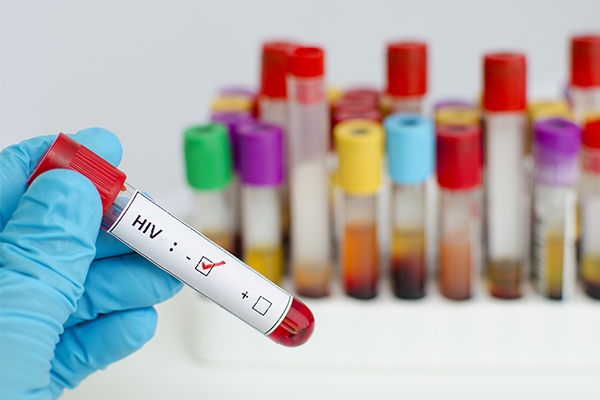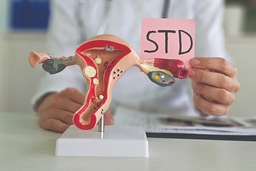If Our Spouse Is HIV/AIDS Positive

Because of the stigma surrounding the disease and the shame of seeking treatment, HIV-positive people tend to hide themselves. Nonetheless, some of the causes are due to unchangeable factors. The most common reason is still having sex without using a condom.
HIV is still incurable. However, the number of reported cases is increasing. According to the Bandung district health office, there were 233 new cases of HIV/AIDS in 2022. It is higher than last year (225).
The symptoms of HIV/AIDS

HIV (Human Immunodeficiency Virus) attacks and destroys CD4 cells, which are a type of white blood cell that plays an important role in the body's immune system. As a result, the body's immunity suffers. People living with HIV are at risk of developing AIDS (Acquired Immune Deficiency Syndrome) in the long run. AIDS is a symptom of advanced HIV infection.
The following are early HIV symptoms, also known as Acute Retroviral Syndrome:
- headache;
- fever;
- nausea;
- frequent diarrhea;
- joint pain;
- muscle pain;
- rash;
- uneasiness in the body;
- loss of appetite;
- swollen lymph nodes
- sore throat;
- frequent canker sores;
- appearance of sores or ulcers in the genital area;
- sweating at night despite the fact that it is not hot outside;
- the body becomes easily tired despite not doing much activity and getting enough sleep.
HIV patients may appear to be healthy. According to the KAPETA Foundation, people infected with HIV feel fine after being infected. Many of them exhibit no symptoms at all.
However, there is no need to wait for symptoms to appear. Rapid treatment gives patients more treatment and medication options.
What if our life partner is infected with HIV?

When our spouse is diagnosed with HIV, we have a lot of questions. Can we continue to live together? Is it possible that I, too, am infected? What about sharing some food? What can I do to look after myself and my husband?
First and foremost, get tested immediately. You should then seek therapy. Support from family and friends will also help you overcome your fears and protect your health.
1. Tell the doctor
Remember to tell the doctor that your spouse has HIV. The doctor will help you locate an HIV counselor or other helpful resources.
Typically, HIV symptoms appear 3-12 weeks after infection. If you and your spouse are sexually active, get tested as soon as possible. This is critical so that you can decide on the next steps quickly.
If the initial results are still negative, repeat the test three months later to confirm them.
The doctor may prescribe antiretroviral (ARV) medications to aid in HIV prevention. HIV drugs work quickly to reduce the virus in the blood. After three months of using this drug, the viral load may decrease and even test undetectable. Take the medication at the same time each day to ensure that it works as effectively as possible.
HIV treatment keeps your spouse healthy.
The bad news is that the HIV virus persists in the human body. Drugs only slow the progression of the disease and increase life expectancy.
2. Choose safer sex
The only sure way to avoid HIV is to avoid sexual activity and needle sharing. If your spouse has the virus, there are several ways to reduce your risk.
There are other ways to enjoy a marriage relationship besides sex. Contact, handholding, massages, and other physical gestures can increase intimacy. Find the most engaging way for you to communicate.
Use a condom if you want to have sex. Condoms are the only way to protect yourself and your partner from STDs (sexually transmitted diseases) such as chlamydia, syphilis, gonorrhea, and herpes.
3. Encourage your spouse to live a healthier lifestyle
Eating well is essential for maintaining strength, energy, and the immune system. In order to avoid infection, it is critical to consider safety and cleanliness.
Uncooked or undercooked meat or fish should be avoided. Pathogens in these foods may be harmful to your health. If you intend to consume something, it is best to fully prepare it.
A person living with HIV may also experience the following issues:
- Changes in the body's metabolism.
- Drugs that may cause digestive issues
- Infections that cause difficulty eating and swallowing.
One of those issues interferes with the body's ability to absorb the nutrients it requires to stay healthy.
Water quality and safety are just as important as food. Water contains bacteria that can infect humans. Use boiling water to drink and cook with.
People living with HIV can still participate in activities that healthy people can. Having HIV does not automatically mean that life is over. When you or your spouse exhibits symptoms of HIV infection, see a doctor right away.
If you have questions about HIV/AIDS, click on WhatsApp or visit GWS Medika Clinic, health clinic in Jakarta.



